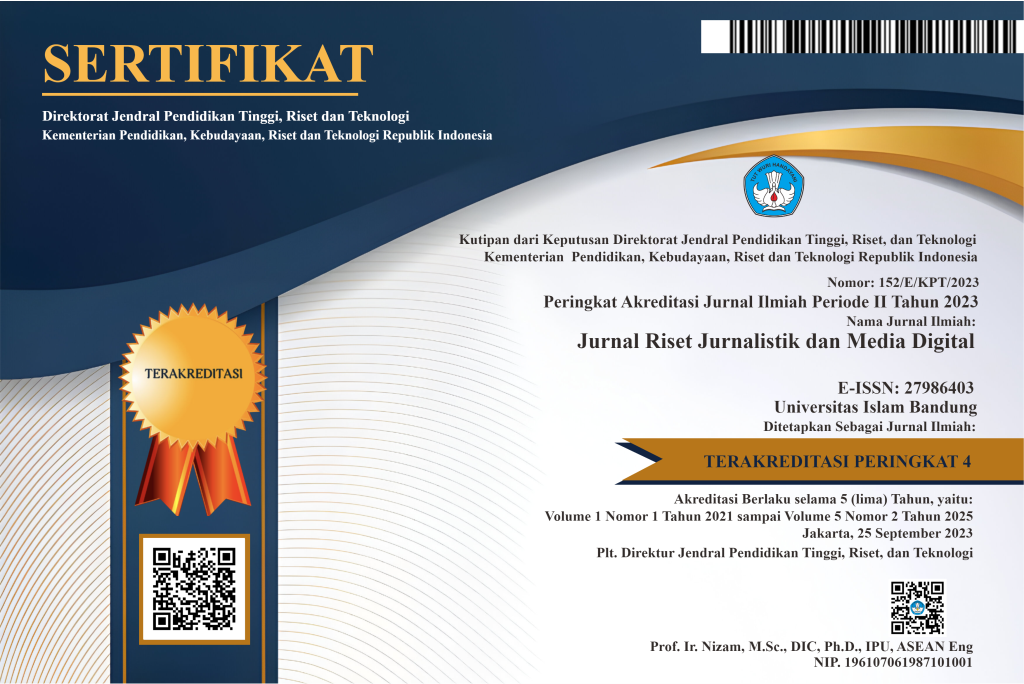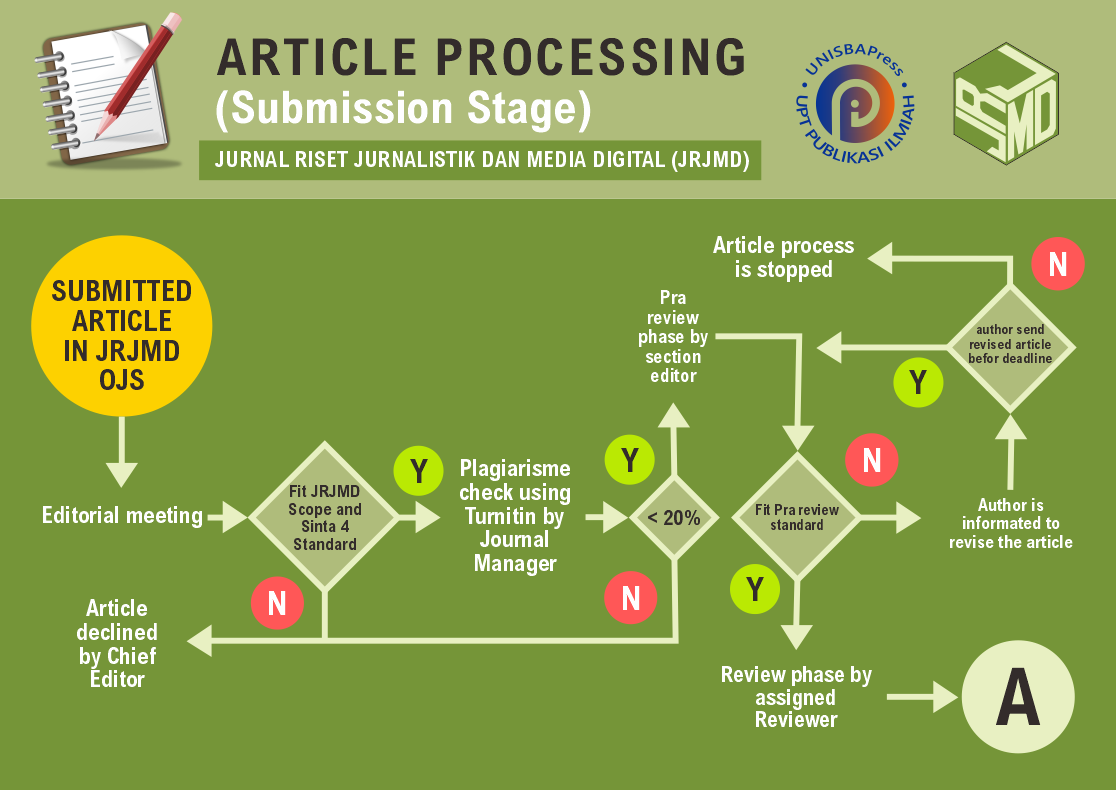Aktivitas Komunikasi Antar Budaya ”Slow Living”
DOI:
https://doi.org/10.29313/jrjmd.v4i2.5238Keywords:
Slow Living, Generasi Z, Gila KerjaAbstract
Abstrak. Dunia telah konkret oleh gaya hidup hustle culture, di mana masyarakat percaya bahwa kerja keras adalah satu-satunya cara untuk meraih kesuksesan. Slow Living hadir sebagai respons terhadap gaya hidup yang terburu-buru dan konsumerisme yang berlebihan. Generasi Z menghadapi masalah komunikasi yang sulit fokus akibat kesibukan di dunia digital, di mana komunikasi online sering kali mencerminkan ketidakjujuran, menyebabkan konflik. Gaya hidup instan dan kebiasaan monoton membuat mereka hidup seperti dalam "autopilot," berfungsi secara otomatis tanpa refleksi mendalam. Akibatnya, interaksi menjadi kurang bermakna dan autentik. Gaya hidup merupakan aspek dominan yang dipengaruhi oleh perkembangan teknologi. Di sisi lain, banyak daerah di Indonesia menyediakan tempat perlindungan dari kesibukan urban, menawarkan kesempatan bagi penduduknya untuk hidup dengan ritme yang lebih lambat dan lebih dekat dengan alam. Penelitian ini bertujuan untuk mengetahui aktivitas budaya Slow Living di kalangan Generasi Z dengan menggunakan metode kualitatif dan pendekatan etnografi komunikasi. Hasil penelitian menunjukkan adanya situasi komunikatif, peristiwa komunikatif, dan tindak komunikatif dalam aktivitas budaya Slow Living di kalangan Generasi Z, bagaimana generasi muda ini mencari makna dan autentisitas dalam interaksi mereka di tengah tekanan teknologi dan budaya kerja keras. Slow Living dapat menjadi alternatif yang bermakna bagi Generasi Z yang berusaha melawan tekanan dari hustle culture dan dunia digital yang serba cepat.
Abstract. The world has been concretely influenced by the hustle culture lifestyle, where society believes that hard work is the only way to achieve success. Slow Living has emerged as a response to the fast-paced lifestyle and excessive consumerism. Generation Z faces communication issues, struggling to focus due to the busyness of the digital world, where online communication often reflects dishonesty, leading to conflicts. The instant lifestyle and monotonous habits make them live on "autopilot," functioning automatically without deep reflection. As a result, interactions become less meaningful and authentic. Lifestyle is a dominant aspect influenced by technological advancements. On the other hand, many areas in Indonesia provide refuges from urban hustle, offering residents the opportunity to live at a slower pace and closer to nature. This research aims to explore Slow Living cultural activities among Generation Z using qualitative methods and ethnographic communication approaches. The findings reveal communicative situations, communicative events, and communicative acts in the Slow Living activities among Generation Z, showing how these young people seek meaning and authenticity in their interactions amidst the pressures of technology and hustle culture. Slow Living can become a meaningful alternative for Generation Z striving to counter the pressures of hustle culture and the fast-paced digital world. Therefore, the researcher believes that these problems and phenomena are considered important and interesting to research. The researcher is interested in writing this research, about how the club implements it and how the club faces challenges in implementing Cyber public relations and also why this club is open about its financial management on Instagram social media. This research uses a constructivist paradigm with qualitative research methods and a case study approach. Researchers used boundary spanning theory and Philips and Young theory to examine the findings.
References
Francis, T., & Hoefel, F. (2018). True Gen’: Generation Z and its implications for companies. McKinsey & Company, 12, 1-10.
Hariyanto, Didik, Dan Ferry Adhi Dharma. Buku Ajar Komunikasi Lintas Budaya. Sidoarjo: Umsida Press, 2020.
Ibrahim. (1994). Penelitian Etnografi Komunikasi. Usaha Nasional.
Iskandar, R., & Rachmawati, N. (2022). PERSPEKTIF “ HUSTLE CULTURE ” DALAM MENELAAH MOTIVASI DAN PRODUKTIVITAS. 2(2), 108–117.
Rabathy, Q. (2018). Nomophobia Sebagai Gaya Hidup Mahasiswa Generasi Z. Linimasa: Jurnal Ilmu Komunikasi, 1(1).
Suryani, A. (2013). Analisis Resepsi Penonton Atas Popularitas Instan Video Youtube Keong Racun Sinta dan Jojoe. Jurnal The Messenger, 5(1), 39-45.
Sugiyono. (2007). Metode Penelitian Kuantitatif Kualitatif Dan R&D. Bandung: Alfabeta.
Walidin, W., Saifullah, & Tabrani. (2015). Metodologi penelitian kualitatif & grounded theory. FTK Ar-Raniry Press.
Zis, S. F., Effendi, N., & Roem, E. R. (2021). Perubahan perilaku komunikasi generasi milenial dan generasi z di era digital. Satwika: Kajian Ilmu Budaya Dan Perubahan Sosial, 5(1), 69-87.
Zorn, R. L. (2017). Coming in 2017: A New Generation of Graduate Students—The Z Generation. College and University; Washington, 92(1), 61.
Downloads
Published
Issue
Section
License
Copyright (c) 2024 Nabil Rabbani, Rini Rinawati

This work is licensed under a Creative Commons Attribution-ShareAlike 4.0 International License.














